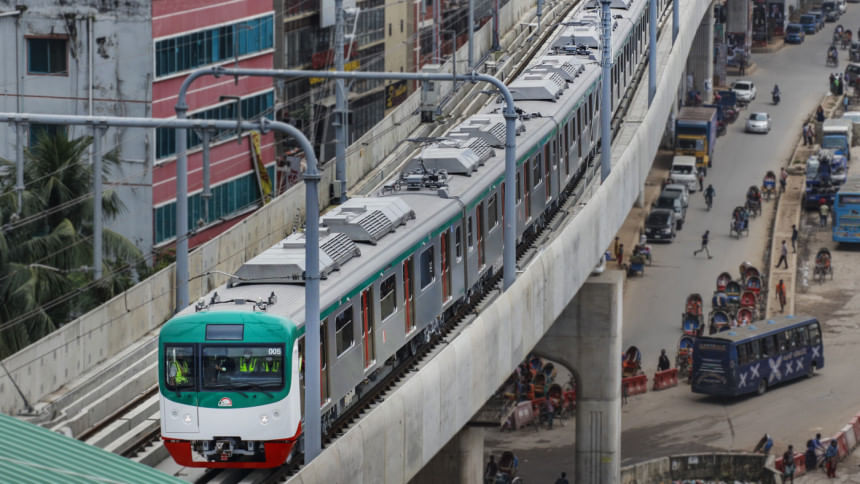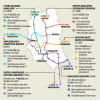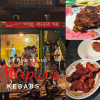How Dhaka’s metro rail simplifies Ramadan commutes

The metro rail has emerged as more than just a mode of transportation — it is a respite. During Ramadan, when the city seems to pulse with a heightened sense of urgency, the metro offers a calm, efficient path through it all. Its ability to bypass the notorious traffic jams means that people can ensure timely arrivals at work and, more importantly, at the family's dinner table for iftar.
As the spring sun cast a gentle dappled light through the Farmgate metro station, Lisa Amin, a call centre executive and regular commuter, found herself amidst a sea of people waiting for the next train.
"The metro rail has made Ramadan days less stressful. I don't worry about being late or stuck in traffic. It's reliable, and during this month, reliability means you have one less thing to worry about," shared Amin, as she boarded the first coach of the train designated only for women.
The metro rail is not just a convenience but a necessity. Farhana Nasrin, a bank employee who lives in Pallabi, Mirpur, relies on the metro to navigate the city's sprawl.
"The metro rail has been a game-changer for me during Ramadan," Nasrin highlights. "It ensures that I get home in time to break my fast with my family, something that was almost impossible before due to the traffic."
According to new timings, which can be found on the website of Dhaka Mass Transit Company Ltd (DMTCL), until 15 Ramadan, metro trains will leave every 8 minutes and passengers can use metro rail trains till 8 PM from the Uttara end and till 8:40 PM from the Motijheel end.
Of course, the comfort and speed of the metro rail are blessings, but the increase in commuters is equally palpable during this time, with countless travellers waiting in line for hours to buy the Single Journey Ticket. It is surely a test of capacity — of the system's ability to maintain its promise of speed and comfort amidst growing demand.
The overall infrastructure, too, has felt the strain. Stations like Farmgate have been tested by the increased footfall — raising concerns about safety, comfort, and the overall commuter experience.
That said, the metro rail system has somewhat emerged as a lifeline for the city's commuters, offering a faster, more reliable alternative to road-based transportation. The metro rail operates on a set schedule, providing commuters with the predictability needed to manage their time effectively during the fasting month. Moreover, air-conditioned coaches offer a respite from the sweltering heat, making the journey more comfortable.
Mohammad Anisul Haque, an elderly commuter who works at a telecommunication company near Karwan Bazar, was seen patiently waiting in line to buy a ticket. When asked if he finds standing in a queue exhausting, he answered, "I remember the days before the metro. Getting around Dhaka during Ramadan was a test of patience. Now, it's much easier to commute compared to hassles we face in local buses."
Despite the metro rail's benefits, the influx of passengers during Ramadan presents several challenges such as this surge can lead to overcrowded trains and stations, particularly during the pre-iftar rush hour. Maintaining the comfort and safety of passengers, especially elderly commuters like Mohammad Anisul Haque, has become more challenging as trains and stations become more crowded.
Deploying extra staff for crowd control and assistance during peak times can enhance safety and efficiency and will be a blessing for commuters. Additionally, many people have yet to acquire the convenience and benefits of an MRT Pass or Rapid Pass, which can largely ease the hassle of waiting in line.
The Dhaka Metro Rail has indeed been a transformative addition to the city's public transport system, offering a glimmer of hope for a more manageable and efficient commute. During Ramadan, its role has become even more critical, providing a viable solution to the unique challenges of this holy month.

 For all latest news, follow The Daily Star's Google News channel.
For all latest news, follow The Daily Star's Google News channel. 









Comments